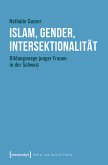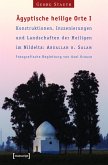Saints, their places, the rituals of their veneration - the heroes and martyrs they represent or to whom they are often connected with - and the beliefs in their powers have often been described as being counter-thematic to the constructive issues of modern society in our times. However, in the Middle East - and certainly this is true for many other world regions and other world religions - local saints, Jewish, Christian and Islamic, have gained a very ambiguous status in religious movements, political struggles and events of social re-construction. In the case of Islam, perhaps more openly, modernists and fundamentalists alike attempt to abolish or to re-formulate the agenda of venerating the saints. However, at the same time saints and their localities have become a sort of overcharged symbolic incidence in the modern presence of Islam, in politics, in the media and - perhaps on a more hidden ground - in the struggle of ideas. In this volume historians, islamologists, anthropologists and sociologists give a multiple description of the inherent issues of the unhampered continuity of Muslim saints and their significance. With this volume 5, the Yearbook of the Sociology of Islam is linking empirical research on individual saints (including cases from Egypt, Turkey, Algeria, Syria and Morocco) with the debates around Islam and modernity.
Georg Stauth teaches Sociology at the University of Bielefeld, Germany, and has widely published on Islam and Theory of Modernity.
Dieser Download kann aus rechtlichen Gründen nur mit Rechnungsadresse in A, B, BG, CY, CZ, D, DK, EW, E, FIN, F, GR, HR, H, IRL, I, LT, L, LR, M, NL, PL, P, R, S, SLO, SK ausgeliefert werden.









